Entropy, connection and translation at ARIA
Dive into our latest opportunity spaces, join our first Deep Tech Collider, and hear how our new CTO, Ant, and F-Spec, Alice, are exploring new frontiers.
What’s new at ARIA
Explore our latest opportunity spaces, which will serve as the bedrock for future funding calls:
Trust Everything, Everywhere, led by Programme Director Alex Obadia, explores whether a new trust infrastructure that straddles both worlds could unlock cyber-physical markets. Dive in and share your thoughts.
Manufacturing Abundance, led by Programme Director Ivan Jayapurna, envisions a future where the next age of materials will be defined by our ability to assemble molecules into bespoke solutions. Dive in and share your thoughts.
Dig into our new thesis, Precision Mitochondria: Programme Director Nathan Wolfe is proposing building a revolutionary toolkit to precisely study and edit mitochondrial DNA. Read the thesis and share your feedback.
See the opportunity seeds we’re funding in Programmable Plants: From landmine-clearing plants to a novel plant hybridisation system, discover them here.
Join us and Deep Science Ventures (DSV) in Leeds for our first Deep Tech Collider: We’re partnering with DSV to bring together engineers and domain experts in the North of England to explore technological solutions to our biggest challenges and opportunities. Apply to attend.
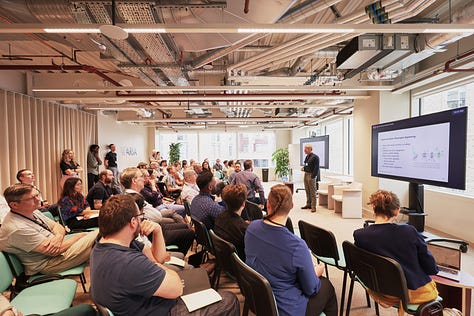
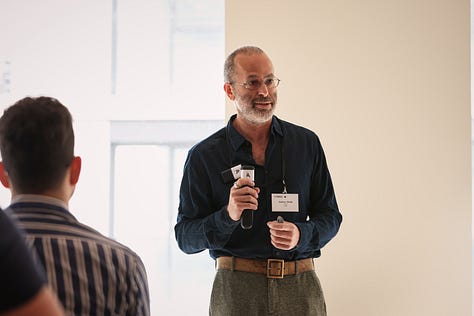
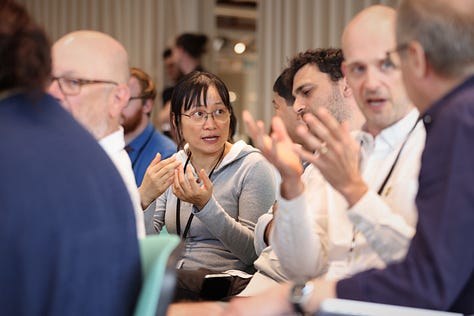
Maximising impact with ARIA’s CTO, Ant Rowstron and Frontier Specialist, Alice Pettitt
The biggest science breakthroughs happen when we spot opportunities others miss – whether it's unexplored territories between disciplines or overlooked talent working outside traditional academia. With our first programmes now in full swing and new opportunity spaces being built, we’re focused on surfacing and speeding up hidden possibilities.
Driving this effort is Ant Rowstron, who joined us in June as our first Chief Technology Officer. We chatted to him and Alice Pettitt, one of our inaugural Frontier Specialists, about their roles so far – plus how they’re already spotting opportunities across ARIA's work and beyond.
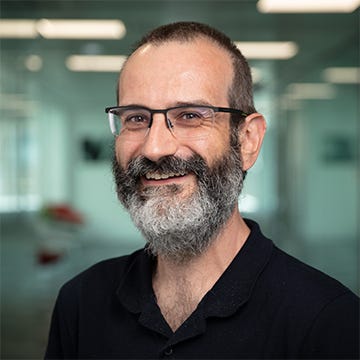
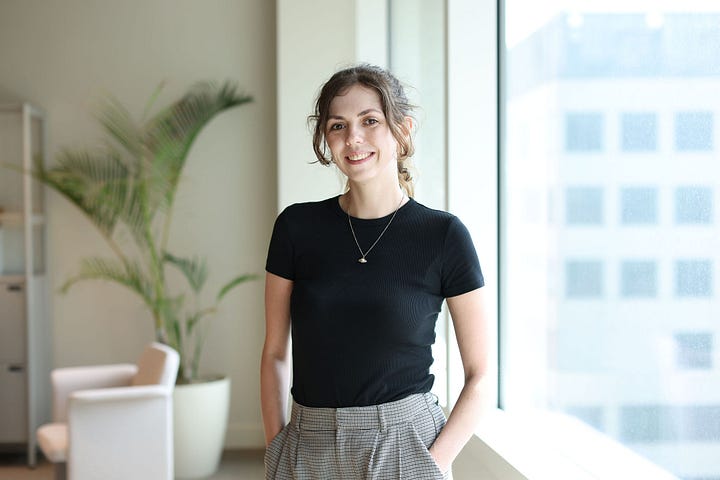
You both joined us a few weeks ago and your roles are the first of their kind at ARIA – what are you both here to do?
Ant: My core focus is maximising the impact of our programmes, working across the organisation to ensure our efforts are translating into real-world results. So that’s everything from helping Programme Directors think strategically about their research direction, to reimagining how ARIA operates. Alice, Frontier Specialists are central to that vision – how would you describe your role?
Alice: We’re a new technical role that works across our opportunity spaces, and beyond them. There are four of us and in terms of our role, we often talk about trying to increase the ‘entropy’ at ARIA.
What does increasing entropy look like in practice?
Alice: It means we provide multidisciplinary technical expertise to help PDs accelerate, decelerate or pivot research directions – it's been incredibly exciting working with the new cohort of PDs on their discovery process, helping them scope out their opportunity spaces. We’re also thinking about potential new research directions that sit completely outside of our existing and developing opportunity spaces.
Ant: Yes, the sheer breadth of areas we cover and have expertise in, plus the under-explored territories between them, has been amazing to see already. I come from deep tech, so when you taught me about fungus-based computing it blew my mind.
Alice: Those are exactly the moments we’re trying to create more of – we want to spot these synergies, or chances for further exploration, that could otherwise get missed.
Ant: And the scaffolding of ARIA also means we can fund amazing Creators who wouldn’t typically surface through traditional routes. You don't need 50 years of academic experience to be working at the cutting edge. You could be working in a startup, or even on your own – we're breaking down silos and really tapping into unexpected places.
Ant, something you’re passionate about is how AI can reshape the way we work at ARIA – can you tell us a bit more about that?
Ant: Absolutely. The impact of AI is going to be transformational over the next decade and I see ARIA not only riding the wave, but also creating it. I genuinely think ARIA could be the first funding agency to have AIs identifying and coordinating funding towards breakthrough technology alongside our cohort of human PDs. We're a young organisation and it's in our DNA to experiment with ideas that could enable us to scale up in that kind of way.
What about you, Alice – what do you think is going to ensure we’re maximising our impact?
Alice: I want to keep up the optimism around ARIA. People both inside and outside the organisation are genuinely energised by what we're building and where we might go next. That optimism is essential for working at the frontier of science and catalysing the breakthroughs we're after, and I can’t wait to see what the future of our work will be.
Activation Partners: Inside the FRC Launchpad
To realise the full potential of breakthrough science, it needs multiple pathways to the real world. That’s where our Activation Partners play a vital role — helping to create the conditions for bold ideas to thrive, building and connecting communities, and empowering those driving impact beyond the lab.
As part of our Activation Partnership with Renaissance Philanthropy, Eric Gilliam has created the Frontier Research Contractor (FRC) Launchpad. The UK-based programme is the first initiative of its kind globally — designed to back founders looking to build organisations capable of conducting wildly ambitious, applied research to accelerate ARIA’s opportunity spaces.
FRCs house specialised knowledge which they use to solve technological problems that fall between the cracks of the traditional scientific ecosystem. These organisations are also referred to as 'BBNs' after the research contractor Bolt, Beranek & Newman that led the R&D behind the original internet project at DARPA.
“The belief here is that there are engineering and R&D gaps in ARIA’s opportunity spaces that no current organisation types are ideally suited to solve,” says Eric. “Problems like building better research software or developing a toolkit to quickly transform crop genomes can substantially accelerate the work of ARIA-funded projects.
“Solutions require small, multi-disciplinary teams that can move extremely fast to provide research services which can be used by many others. Amodo, another Activation Partner, is a great example — they solve the hardware/prototyping gap at ARIA so researchers can pursue their work with bespoke tooling, often developed faster than they thought possible.”
The FRC Launchpad is looking for would-be founders and existing BBNs that combine immense technical ambition with operational practicality. "I’m not shy about saying that we are looking for FRCs with the ambition to do work that enables a future Turing Award or an ASML-type company," says Eric, "but they need to have ideas on how to fund that work in a sustainable way."
Apply now to UK Horizons: Frontier Research Contractors (FRCs).
Eric Gilliam is also the author of the FreakTakes blog – check out his conversation with ARIA CEO, Ilan:


